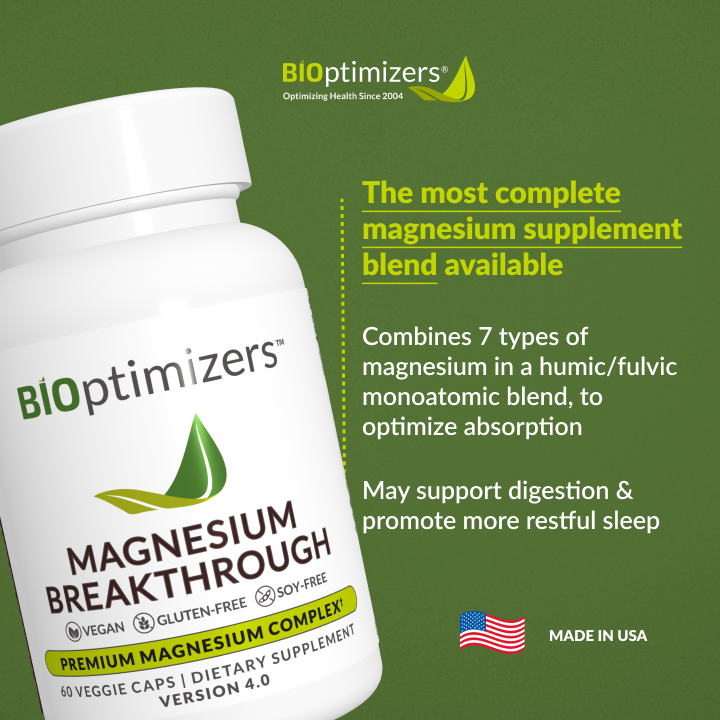 Stop Heart Attack Naturally: Your Comprehensive Guide to Heart Health
Stop Heart Attack Naturally: Your Comprehensive Guide to Heart Health
Heart attacks, medically known as myocardial infarctions, are a leading global cause of death, claiming countless lives annually. The fear of experiencing one is widespread. Understanding how to potentially stop a heart attack in its tracks or prevent one naturally can be crucial for safeguarding your health. This comprehensive guide provides valuable, compelling, and informative strategies to naturally mitigate the risk and symptoms of heart attacks, helping you take charge of your heart health.
Recognizing Early Symptoms
Early recognition of heart attack symptoms is critical. According to the American Heart Association, the key symptoms include:
– Chest Pain or Discomfort: This is often described as a squeezing sensation or pressure in the chest.
– Shortness of Breath: Occurring with or without chest discomfort.
– Nausea and Lightheadedness: These symptoms can accompany or precede chest pain.
– Discomfort in Other Areas: Pain or discomfort in the arms, back, neck, jaw, or stomach.
Recognizing these symptoms early and acting quickly can significantly improve outcomes.
Immediate Actions During a Heart Attack
If you suspect a heart attack, taking immediate action is vital:
1. Call Emergency Services: This is the most crucial step. Professional medical help is paramount.
2. Chew Aspirin: Aspirin can help thin the blood and prevent further clotting.
3. Stay Calm and Rest: Stress can exacerbate heart issues. Try to remain calm and sit or lie down to reduce strain on the heart.
Natural Remedies and Lifestyle Changes

Dietary Adjustments
Adopting a heart-healthy diet is crucial. Studies show that diets rich in fruits, vegetables, whole grains, nuts, and fish can significantly reduce heart disease risk. Key dietary adjustments include:
– Increase Omega-3 Fatty Acids: Found in fish, flaxseeds, and walnuts, omega-3s help reduce inflammation and lower blood pressure.
– High-Fiber Foods: Fiber helps reduce cholesterol levels. Incorporate foods like oats, beans, and lentils.
– Antioxidant-Rich Foods: Berries, dark chocolate, and green tea are excellent sources of antioxidants that protect the heart.
Regular Exercise
Physical activity strengthens the heart and improves circulation. The American Heart Association recommends at least 150 minutes of moderate-intensity exercise weekly. Activities such as brisk walking, swimming, and cycling are excellent choices.
Maintain a Healthy Weight
Excess weight puts additional strain on the heart. Achieving and maintaining a healthy weight through diet and exercise can significantly reduce the risk of heart attacks. A study published in The Lancet found that a 5-10% reduction in body weight can improve blood pressure, cholesterol levels, and insulin sensitivity.
Quit Smoking
Smoking is a major risk factor for heart disease. Quitting smoking improves heart health almost immediately and significantly reduces the risk of a heart attack. The risk of heart disease drops by 50% one year after quitting, according to the CDC.
Limit Alcohol Consumption
Excessive alcohol intake can lead to high blood pressure and heart disease. Stick to moderate drinking guidelines—up to one drink per day for women and two for men. Studies show that moderate alcohol consumption, particularly red wine, may have heart-protective benefits due to its antioxidant content.
Manage Stress

Chronic stress can negatively impact heart health. Practice stress-reducing techniques such as meditation, yoga, deep breathing exercises, and spend time in nature. According to the American Psychological Association, mindfulness meditation can reduce blood pressure and heart rate.
Natural Supplements and Remedies
Garlic
Garlic has been shown to help lower blood pressure and cholesterol levels, contributing to better heart health. A study in the Journal of Nutrition found that garlic supplementation can reduce systolic and diastolic blood pressure.
Turmeric
The anti-inflammatory properties of turmeric can help reduce inflammation and improve cardiovascular function. Curcumin, the active ingredient in turmeric, has been shown to improve endothelial function, which is the lining of the blood vessels.
Coenzyme Q10
This antioxidant supports heart health by improving cell energy production and reducing oxidative stress. CoQ10 supplementation has been linked to reduced mortality in heart failure patients, according to a study published in the European Journal of Heart Failure.
Emergency Natural Remedies
Nitroglycerin
While typically prescribed, nitroglycerin can be a natural remedy in emergencies to help dilate blood vessels and improve blood flow to the heart. Always consult with a healthcare professional before using nitroglycerin.
Cayenne Pepper
Some herbalists suggest that cayenne pepper can help during a heart attack by stimulating circulation and increasing heart rate. While evidence is anecdotal, it’s worth noting its potential benefits in emergencies.
Long-Term Prevention Strategies
Regular Health Check-ups
Regular visits to your healthcare provider can help monitor heart health and detect any issues early. Routine check-ups, including blood pressure, cholesterol, and glucose tests, are essential for preventing heart disease.
Cholesterol and Blood Pressure Management
Keeping cholesterol and blood pressure levels within recommended ranges is crucial for heart health. This can be achieved through diet, exercise, and medication if necessary. The National Heart, Lung, and Blood Institute recommends a diet low in saturated fats and cholesterol to maintain healthy levels.
Diabetes Management
If you have diabetes, controlling blood sugar levels is vital to preventing heart disease. The American Diabetes Association highlights the importance of diet, exercise, and medication in managing diabetes and reducing heart disease risk.
Conclusion:
While medical intervention is essential during a heart attack, adopting these natural methods and lifestyle changes can help prevent and manage heart disease. By making conscious choices to improve your heart health, you can significantly reduce the risk of a heart attack and lead a healthier, more fulfilling life. Always consult a healthcare professional before starting any new treatment or making significant lifestyle changes.
By integrating these strategies into your daily routine, you can create a robust defense against heart disease. From dietary adjustments to stress management, every small change contributes to a healthier heart. Remember, prevention is always better than cure, and taking proactive steps today can ensure a healthier tomorrow.
Actionable Steps for Today
– Start a Heart-Healthy Diet: Incorporate more fruits, vegetables, and whole grains into your diet.
– Exercise Regularly: Aim for at least 30 minutes of moderate exercise most days weekly.
– Monitor Your Health: Keep track of your blood pressure, cholesterol levels, and weight.
– Quit Smoking: Seek support if needed, but make quitting smoking a priority.
– Manage Stress: Practice mindfulness, meditation, or any stress-reducing activities you enjoy.
Taking these steps not only benefits your heart but also enhances your overall well-being. Stay informed, stay proactive, and embrace a lifestyle that supports your heart’s health. Remember, a healthy heart is the foundation of a healthy life. Start today, and your heart will thank you tomorrow.
Magnesium Breakthrough and the Heart

Magnesium is an essential mineral that plays a vital role in many bodily functions, including heart health. Magnesium Breakthrough, a premium magnesium supplement, has been gaining attention for its potential benefits in supporting cardiovascular function. Magnesium is crucial for maintaining normal muscle and nerve function, regulating blood sugar levels, and producing energy, which are fundamental to heart health. By ensuring an adequate magnesium intake, individuals can support their cardiovascular system and reduce the risk of heart-related issues.
One of the standout benefits of Magnesium Breakthrough is its unique formulation, which includes seven different forms of magnesium. This comprehensive approach ensures that the body can absorb and utilize magnesium efficiently. Research has shown that magnesium deficiency is linked to various cardiovascular issues, including hypertension, arrhythmias, and coronary artery disease. By addressing this deficiency, Magnesium Breakthrough can help improve heart rhythm, lower blood pressure, and enhance overall cardiovascular health.
Magnesium Breakthrough also supports the production of adenosine triphosphate (ATP), the energy currency of the body. The heart, being a muscle, requires a constant supply of energy to function properly. Adequate magnesium levels ensure that the heart muscles receive the energy they need to pump blood effectively. Moreover, magnesium helps relax blood vessels, which can reduce the strain on the heart and lower the risk of hypertension. This relaxation effect also improves blood flow, ensuring that oxygen and nutrients are efficiently delivered to the heart and other vital organs.
Incorporating Magnesium Breakthrough into your daily routine can be a proactive step towards better heart health. With its multi-faceted benefits, this supplement addresses not only the immediate needs of the heart but also contributes to long-term cardiovascular wellness. By optimizing magnesium intake, individuals can support their heart’s function, prevent common cardiovascular issues, and maintain overall health and vitality.
References:
- https://www.healthline.com/
- https://www.medicalnewstoday.com/
- https://heart.arizona.edu/heart-health/
- https://www.medicalnewstoday.com/
- https://www.healthline.com/
- https://health.clevelandclinic.org/
Learn more:
- https://wellnesswealthconnect.com/what-is-the-health-benefits-of-green-tea/
- https://wellnesswealthconnect.com/magnesium-rich-foods-diet/
- https://wellnesswealthconnect.com/best-meditation-techniques-anxiety/
- https://wellnesswealthconnect.com/yoga-breathing-exercises-anxiety/
- https://wellnesswealthconnect.com/mindfulness-and-meditation-for-anxiety/

